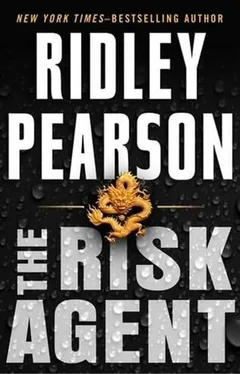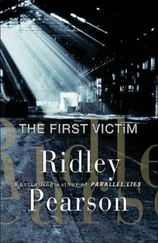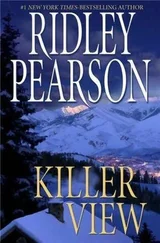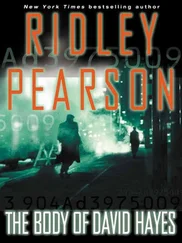Out on the street, Kozlowski said, “If you’re lucky, they put you in a six-by-six-foot cell and slowly starve you. Within a week, you’ll say anything into the video camera they want you to say, and it won’t help you one bit to say it. If you’re unlucky, you never get as far as the cell.”
“He liked me,” Knox said.
“You do not want to get into this.”
“I’m buying a couple motorcycles.”
“Listen, I know who lives in the apartment building in Zhabei where the man was beaten-a man, by the way, who has not been seen since. He should have visited a hospital; he did not.”
“Health care these days.”
“I also know which private security companies are contracted to which U.S.-based corporations with offices here. I know whose jet carried you into Hong Kong. I will say this, Knox: I’m very careful about running background checks on the people I drink beer with. Break bread with. The people I admit into the consulate for Monday Night Football. Extremely careful. So either I missed something-unlikely-or you’re a sleeper-also unlikely-or you’re into something you shouldn’t be. But I’d gotten to like you, and that opinion is quickly changing.” He waited a moment for people to pass them on the sidewalk. “I help people I like. But not the stupid ones.”
Knox considered entering full denial mode-his knee-jerk reaction to such lectures. He caught himself and said, “I need the laptop or its contents. I need a heads-up if the heat joins the game. And I need some slack from you.”
Kozlowski said, “You think? Really?”
“Time’s against us here,” Knox said. “I’m staying at-”
“The Jin Jiang, room five-forty-seven. I know that. Shit, Knox, what do you think I do all day?”
Knox swallowed dryly. He didn’t like the thought that Kozlowski was keeping tabs on him. He wondered if Kozlowski knew about the room at Fay’s as well.
Knox shook the man’s hand and thanked him. “You’ve been a big help.”
“Whatever you took out of there,” Kozlowski said, “I wouldn’t mind it landing on my doorstep in a basket with no note. This street is two-way or it’s shut down,” Kozlowski said.
“Understood.”
Knox looked up in time to spot the distinct shape of a face among the hundreds of Chinese looking his way. A man on a green motorcycle, nearly the color of Danner’s.
A Mongolian.
10:45 A.M.
Up the street, a wide-shouldered man loitered on his motorcycle by a cart that sold cong you bing-green onion pancake. He watched the two Caucasians leaving a nondescript entrance.
The man’s parents had created his name, Melschoi, by way of a cruel acronym: Marx, Engels, Lenin, Stalin and Choibalsan. He’d taken heat for it in the schoolyard, but by the time he’d signed with the police in Ulan Bator, no one murmured a critical word in his company. Melschoi had developed into an imposing force: physically oversized, mentally resilient and morally strong.
After six years, on a police force fueled by corruption, Melschoi’s attempt to stay clean proved his ruin. In failing to bring down a cabal of officers, he and six police loyal to him-four of whom were with him now in Shanghai-had been betrayed. Two of his team, including his younger brother, had been abducted, tortured and brutally killed. He and his remaining four officers had been forced to run, stowing away beneath a winter train bound for Beijing, an experience that accounted for the two missing fingers on Melschoi’s left hand.
Disgrace had left him disfigured. He and his men planned to return to Ulan Bator with enough money to move and protect their families before finishing what they’d begun.
Now he’d lost two of his men to injury at the hand of an eBpon-a foreigner. He’d witnessed this same eBpon visiting the Sherpa’s driver. Now he was with Cold Eyes-the U.S. Consulate’s security chief. As far as he was concerned, it confirmed the eBpon was a spy, a foreign agent. This discovery irritated him, because it meant that the man was hands-off. His client would not tolerate an act against the U.S. government.
Melschoi understood the guidelines imposed. But he understood the rules of a street fight better. The foreigner would pay for cutting his team in half, though the man’s ability to take out two of his men did not go disrespected. Melschoi had long since proved himself to be a patient and careful adversary. Accidents happened.
He left the motorcycle and hailed a taxi, prepared to switch cabs several times if necessary.
The eBpon would never know what hit him.
7:06 P.M.
HUANGPU DISTRICT
THE BUND
SHANGHAI
Heading up Guangdong Road toward the Huangpu River, the buildings grew older and more imposing. Some of them dated back to the nineteenth century, when this area was an enclave of foreign privilege, and Shanghai thrived on trade in tea, silk and opium. Where once the flags of many countries flew from these rooftops, now hung the distinctive scarlet Chinese flag.
The wide avenue paralleling the Huangpu fronted a river walk that held ten thousand or more Chinese tourists on a given night. Weekend nights, there were even more. There was a European grandeur to the Bund, like Grand-Place in Brussels, or the Champs-Élysées in Paris, an architectural nobility. The air buzzed with an intoxicating mix of human excitement, ships’ horns and the whine of vehicles.
Arriving at a group of valets, Knox had a glimpse of the teeming quay and beyond it, the neon- and LCD-charged Pudong skyline. The Pearl Tower flashed pink and turquoise through the evening darkness. Ten-story screens on the sides of high-rises played advertisements for Coke and KFC. Tens of thousands of tourists jammed the elevated quay, all jostling for a piece of the famous view.
Grace waited on the steps, pushed back against a handrail while watching guests being dropped off by their drivers. Mercedes, Lexus, BMW, the ubiquitous chauffeured blue Buick minivan, a symbol of the corporate expatriate life.
She looked ravishing in a short purple raw silk jacket over a black tea dress with a high neckline. A string of turquoise and red coral complimented her long neck. Her hair, not a strand out of place, was pulled back into a bun stabbed into place by a length of tortoiseshell.
She leaned to kiss Knox on the cheek, ever the role player. “You will find, unlike our American counterparts, Chinese women are always on time.”
Knox checked his watch. Five minutes late.
“You look…lovely,” he said.
“And I would take this as a compliment if I heard conviction over surprise.”
He took her arm, his grip strong on her elbow, and guided her up the marble steps.
Grace resisted. “I would prefer a drink, alone, before we go up.” She seemed hyperaware that anything and everything said between them might be heard. She angled her head across the street.
“Your wish-” he said, escorting her through a break in traffic.
They rode the elevator to New Heights, a seventh-floor restaurant and bar that also overlooked the river. They had a view across Guangdong Road and through the windows into the Glamour Bar where Yang Cheng’s party was already underway.
The bar itself was made of thick, frosted slab glass, the liquor bottles reflected off shiny shelves of black lacquer. He ordered a beer, and she a glass of Champagne. With no seats to be found, they stood at a chest-high drink counter.
“So?” Knox said.
“Before we go upstairs and into that,” Grace said, pointing toward the Glamour Bar, “where honestly we must play our roles to perfection-I wanted to know when you were going to tell me about what you are carrying in your coat pocket?”
Knox leaned away.
“I felt it when you kissed me on the steps. You don’t smoke. It is not a cigarette case. It is too heavy, and too big for a phone. Too light for a handgun, too bulky for another kind of weapon-a knife, for instance. It is in your right pocket-you are right-handed, so you obviously wanted it close.”
Читать дальше












